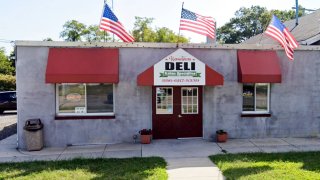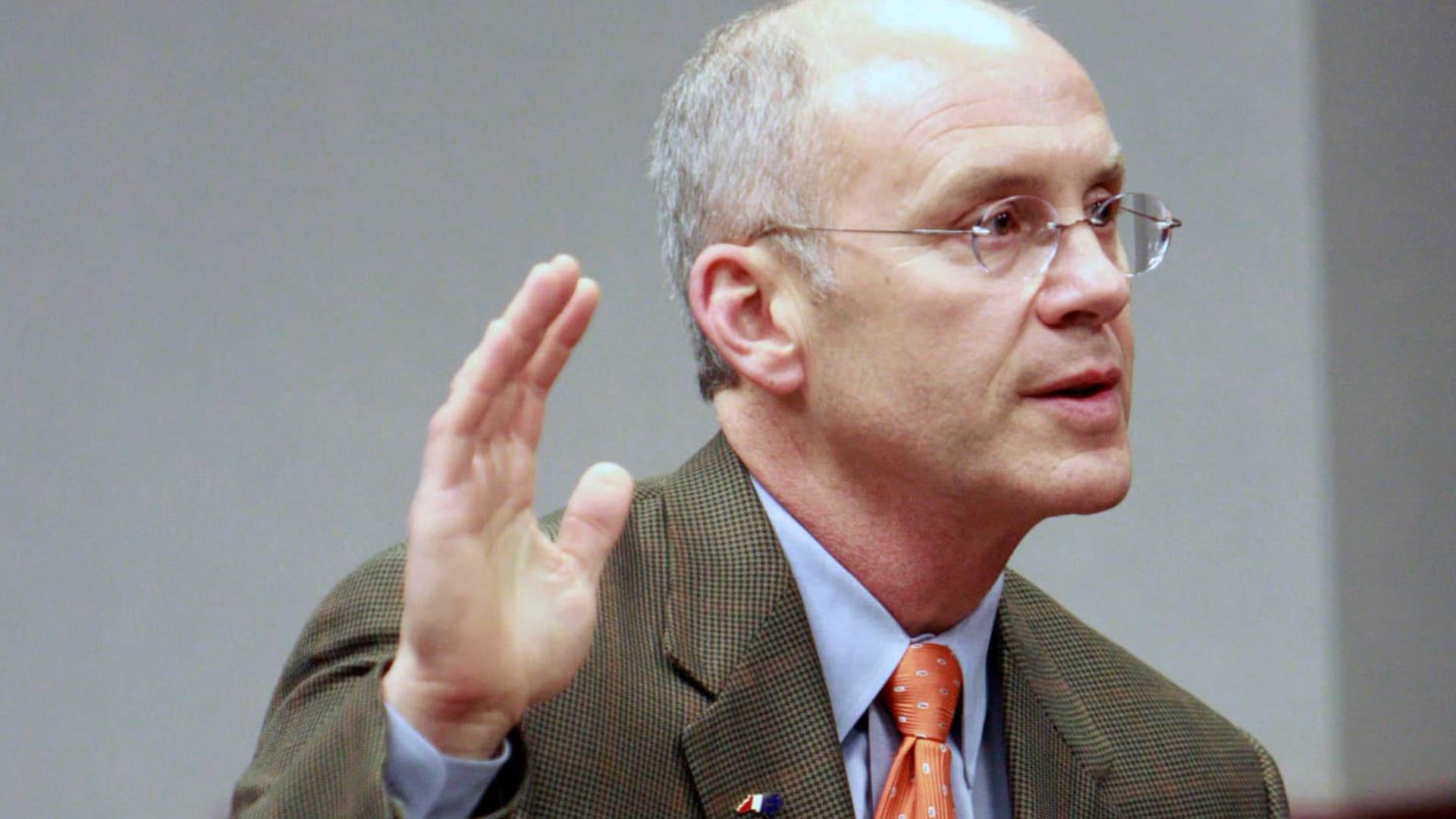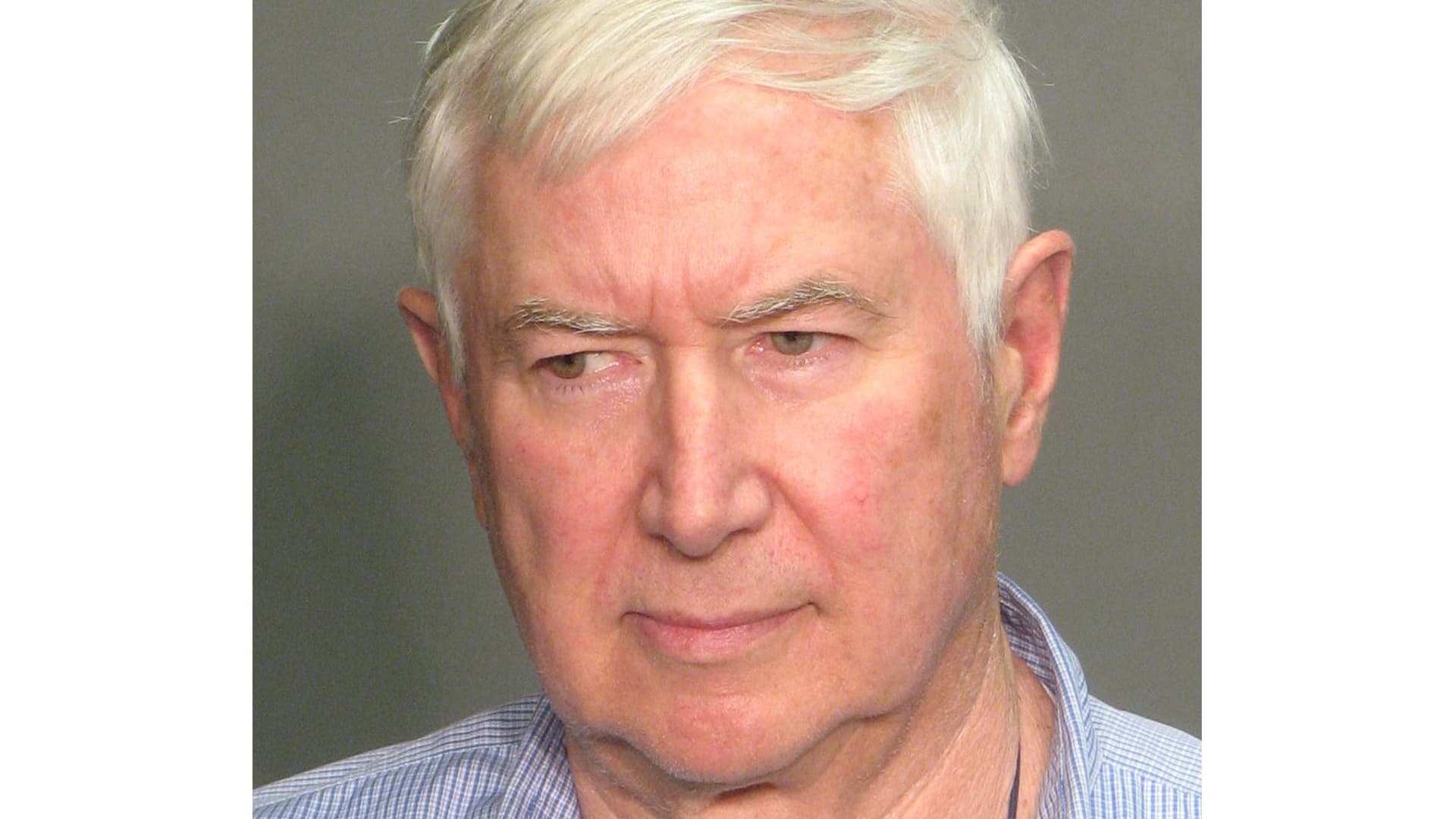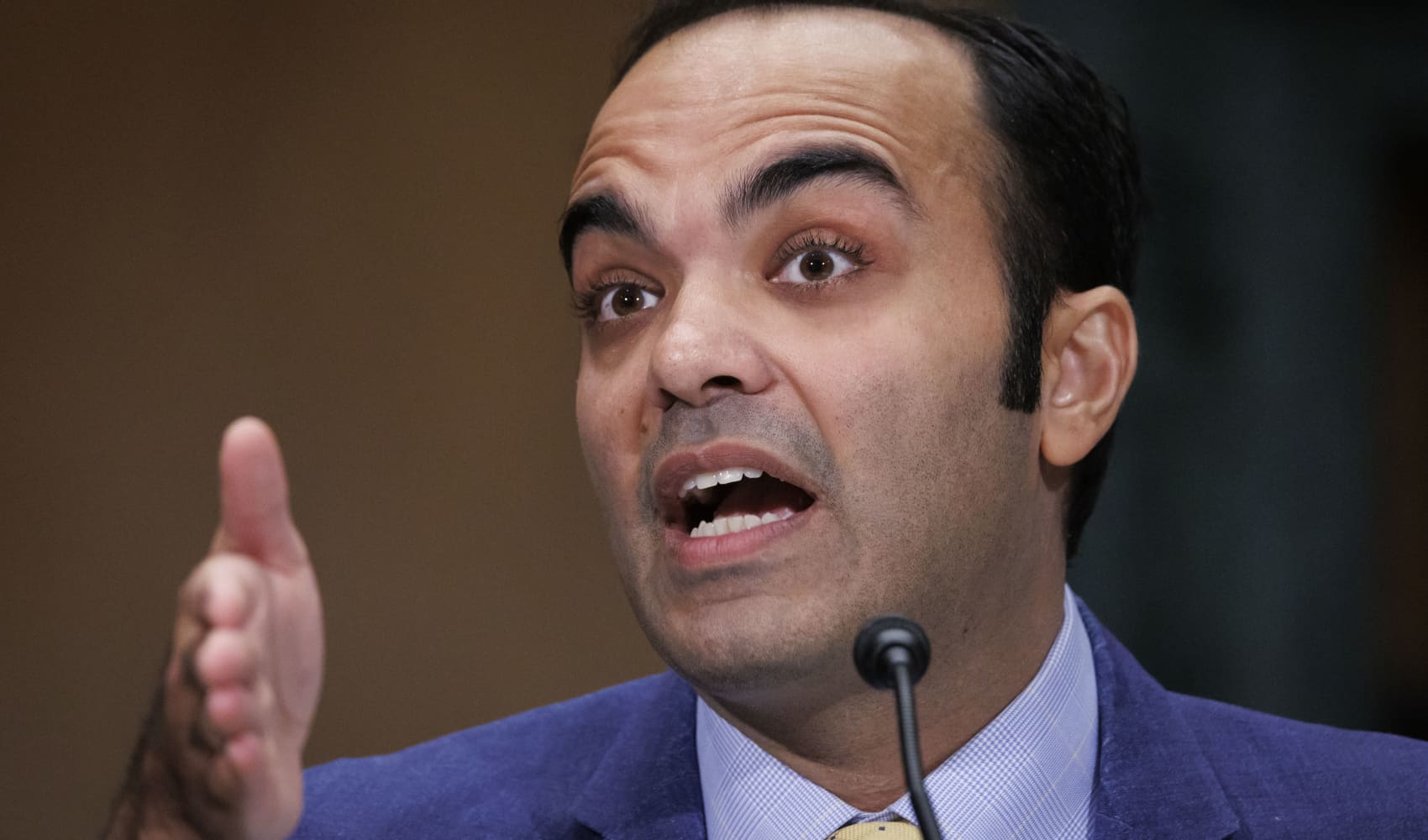
- A New York real estate tax lawyer — who once did work for former President Donald Trump — in 2011 purchased a shell company whose creators later became key investors in a mystery $100 million company that owns only a small New Jersey deli.
- Europa Acquisition I Inc. was one of eight shell entities set up by Peter Reichard and Peter Coker Sr., the North Carolina investors in deli owner Hometown International.
- CNBC has detailed criminal and regulatory sanctions imposed on people and entities linked to Coker Sr. and Reichard. Duke and Vanderbilt universities are invested in Hometown International, as are entities based in Macao.
Shell companies sure make strange bedfellows.
A New York real estate tax lawyer — who did work for former President Donald Trump decades ago — in 2011 purchased a shell company whose creators later became key investors in a mystery $100 million company that owns just a small New Jersey deli, records show.
The shell company — Europa Acquisition I Inc. — was one of eight shell entities set up in 2010 by Peter Reichard and Peter Coker Sr., the North Carolina-based investors in deli owner Hometown International.
Get New England news, weather forecasts and entertainment stories to your inbox. Sign up for NECN newsletters.
After Reichard and Coker sold them, most of those shell companies — including the one later purchased by Trump's former real estate tax lawyer Allan Schwartz — ended up having their registrations revoked by the Securities and Exchange Commission for failing to keep current in their disclosure filings, records show.
The shell companies were named in numerical sequence, starting with Europa Acquisition I and ending with Europa Acquisition VIII.
Money Report
Schwartz, the former Trump lawyer, told CNBC in a phone interview that he knew nothing about Coker Sr. and Reichard, Hometown International, or its deli in Paulsboro, New Jersey, which has minuscule sales. Coker Sr. and Reichard sold the Europa shell months before Schwartz bought it from other entities.
Schwartz, 73, is the latest person with an eyebrow-raising history to pop up in financial records linked to the deli company investors or to entities they were involved in.
"I know nothing about it," Schwartz said Monday after a reporter told him that key investors in Hometown International had created a shell company he once owned.
Schwartz laughed when he was told details about Hometown International, including its market valuation of $100 million despite it owning only a South Jersey deli that had sales of less than $37,000 for the past two years.
'Buyer beware'
Schwartz is in good company.
A lot of people have laughed or made jokes about Hometown International since last month, when hedge fund manager David Einhorn first highlighted the deli owner's preposterous market capitalization and used it as a warning to retail investors.
"The pastrami must be amazing," Einhorn quipped in an oft-quoted line from that letter.
In recent weeks, CNBC has detailed criminal and regulatory sanctions imposed on people and entities linked to Coker Sr. and Reichard, reported on the investments by Duke and Vanderbilt universities in Hometown International and revealed details about the opaque nature of a group of Macao-based investors in that company.
Articles also have explored the incongruous professional backgrounds of Hometown's two executive officers — both of whom are public high school administrators — and the existence of a related shell company. That shell company, E-Waste, like the deli owner, has a sky-high stock market capitalization that is not justified by any meaningful business operations.
Those articles led to the termination of consulting agreements in which Hometown International and E-Waste had paid thousands of dollars per month in fees to a firm controlled by Reichard and Coker Sr.
Another firm controlled by the two men, Europa Capital Investments, remains a major investor in Hometown International, as does Coker Sr. as an individual. Coker Sr.'s son, Hong Kong-based Peter Coker Jr., is the deli company's chairman.

Both Hometown International and E-Waste in recent weeks took the extraordinary step of telling the SEC in a filing that their relatively high stock prices are unjustified.
That move came after OTC Markets Group in late April demoted the deli owner's stock from one over-the-counter trading platform to a less prestigious platform.
OTC Markets said that move, and its imposition of a "buyer beware" warning label on Hometown International stock, were warranted by "irregularities" in public disclosures filed by the company.
A crooked pedigree
Records reviewed in recent days by CNBC show that a now-disbarred lawyer — who last year pleaded guilty to federal criminal charges related to a shell company factory scheme — also was involved in the creation of the Europa Acquisition shells for Coker Sr. and Reichard. That same lawyer three years later played a similar role in the creation of Hometown International and later securities filings for that company.
SEC records show that the accounting firm involved during the registration of the Europa Acquisition shell companies was an earlier incarnation of a Florida-based firm that handled accounting work for Hometown International.
The Florida firm itself was censured last year by an accounting oversight board for lack of oversight in work for a company that is not connected to either the deli owner or to the Europa shell companies.
CNBC last week obtained from the Raleigh Police Department in North Carolina a record of Coker Sr.'s arrest on April 30, 2010, on a charge of soliciting a prostitute, who herself was arrested that day.
That arrest came nearly 18 years after Coker Sr. was reportedly arrested in Allentown, Pennsylvania — where he had been a high school basketball star — on prostitution and other charges. The Morning Call newspaper at the time reported that Coker, then 49, was nabbed by police after allegedly exposing himself to three girls, one as young as 10 years old, and trying to proposition them.

"Yes," Coker Sr. said when he answered his phone Monday and was told that a reporter was calling.
"Thanks, but no," he said when told that CNBC was preparing to publish another article about him. He then hung up after a reporter asked if he would listen to details of that article.
Coker, 78, previously was accused in lawsuits of hiding assets from a bank that he owed nearly $900,000, and of business-related fraud. He denied those allegations at the time of the lawsuits.
The 64-year-old Reichard, who was sued along with Coker Sr. in 2019 in a now-settled case regarding alleged business fraud involving a specialty foods retailer in North Carolina, did not respond to repeated requests for comment. His lawyer in the lawsuit had denied the plaintiff's claims of wrongdoing at the time the case was filed.
In late 2011, Reichard was convicted in North Carolina court of a criminal scheme that illegally contributed thousands of dollars to the successful campaign of Bev Perdue, a Democrat, for governor of that state in 2008. The scheme involved the use of bogus consulting contracts with Tryon Capital, a firm controlled by Reichard and Coker Sr. The elder Coker was not charged in that case.
Tryon Capital is the same firm that until last month was being paid $15,000 a month by Hometown International for a consulting agreement and $2,500 per month by E-Waste for a similar agreement.
In financial filings, Hometown International and E-Waste have indicated that they are marketing themselves as candidates for reverse mergers or other financial maneuvers, which would have them effectively taken over by a private company that wants to become publicly traded in the United States.
Shell game
Investments by outside entities in the past year, including ones linked to Duke and Vanderbilt that were placed by a Hong Kong-based investment firm, in both companies were meant to bolster that effort.
But the investments do not explain the bizarre steep rise of share prices of both Hometown International and E-Waste in the past year, particularly since E-Waste has no actual business.
Both stocks are thinly traded, at best, each day. They also, despite having millions of common stock shares outstanding, have relatively few shareholders, the largest of which are entities involved in the plan to have the companies merge with other firms.
If that plan is successful, shareholders are expected to receive a return on their investment that bears little, if any, resemblance to the current share prices of either company.
All of those facts raise the question of why anyone would pay so much now to buy shares of the companies on the open market.
Adding to the oddness is the fact that the CEO of the deli owner, 62-year-old Paul Morina, is the principal of Paulsboro High School and the head coach of the school's renowned wrestling team. The only other executive is Christine Lindemuth, 46, an administrator and a teacher at the same high school, which is close to the deli.

E-Waste's only executive, 66-year-old New Jersey resident John Rollo, is a Grammy-winning music recording engineer who last year worked as a patient transporter at a New Jersey hospital.
The eight Europa Acquisition shell companies were set up by Reichard and Coker Sr. as so-called blank check companies to become vehicles for transactions like those being sought by Hometown International and E-Waste, according to SEC filings.
Several of the shells actually ended up being used for that purpose, in transactions that ended with them being controlled by China-based companies.
Those filings show that Europa Acquisition I was incorporated in Nevada in June 2010 and a month later filed a registration of securities with the SEC, as did four other Europa shells.
The three highest-numbered Europa shells were registered with the SEC in December 2010.
In 2020, Gregg Jaclin, the lawyer named on the Europa Acquisition company filings, pleaded guilty to federal criminal charges related to his creation of shell companies to sell to individuals "who use those shell companies as publicly traded vehicles for market manipulation schemes," court records show.
None of the companies involved in that scheme were the Europa Acquisition shells.
Nor were they Hometown International, whose first SEC filings lists Jaclin as a lawyer for that corporation.
Jaclin, who was disbarred as a lawyer and sanctioned by the SEC for his actions, did not respond to requests for comment.
The Schwartz story
The July 2010 registration filing for Europa Acquisition I said that Reichard, who served as its president and director, held 60,000 shares of the company, while Coker Sr. held the remaining 40,000 shares.
That share split between the business partners was mirrored in other initial filings by Europa shells.
Less than three months later, Reichard and Coker sold all of their shares for $15,000 to two companies, Beige Holdings and Marlin Financial Group, filings show.
One of Schwartz's sons, Gregory, then was appointed as president of Europa Acquisition I, filings state.
Then, in January 2011, Allan Schwartz himself paid $18,750 for 90%, or 90,000 shares, of the company, while Beige Holdings retained 10,000 shares.
"I had no doubt that I bought a quiet, clean shell company," Allan Schwartz said in a phone interview.
Schwartz said that he purchased Europa Acquisition I — his first and only shell company — "with the hope that we could do something with it," along the lines of a merger with a small company and possibly an additional issuance of stock.
But, he said, "it never did anything," after several years of Schwartz paying thousands of dollars annually to maintain the existence of the company, which at some point he renamed Wintahenderson International.
"At a certain point, I said that's the end of it," recalled Schwartz. "We just let the company go out of business."
Wintahenderson last filed a required quarterly report with the SEC in 2017, according to the regulator's online database.
Last September, the SEC revoked Wintahenderson's registration for failing to file required periodic reports. The SEC had taken similar action for the same reason against most of the other Europa Acquisition shells years earlier.
Working for Trump
Schwartz currently is senior counsel and senior managing partner at the Manhattan firm of Podell, Schwartz, Schecter & Banfield, which represents property owners seeking to reduce their property taxes.
Schwartz's current firm, which is a leader in real estate tax work, merged in 1997 with his prior firm, Schwartz & Weiss.
"At one point in time our firm did represent Trump, but that's going back 27 years or more," Schwartz said.
"I don't think I represented Trump for more than two, three years," Schwartz said. "I think I met him once in his office at Trump Tower ... 99% of the time I was dealing with someone in his office."
At some point, Schwartz said, Trump "switched real estate tax attorneys."
"Sometimes clients choose to go with another firm," Schwartz said. "Maybe he wasn't happy, and he changes lawyers."
Schwartz said that decades ago a former New York City tax assessor and city Tax Commission hearing officer named Thomas McArdle may have done some work for his law firm after becoming a consultant.
But Schwartz said that he had "zero recollection" of McArdle performing any work in connection with Trump's properties for Schwartz's firm.
In 2002, The New York Times reported that McArdle was a key figure in a federal indictment filed against 18 other then-current and former city tax assessors, who were charged in a decades-long scheme with accepting millions of dollars in bribes in exchange for lowering property taxes for commercial property owners.
Prosecutors said at the time that the scheme had cost New York City $160 million in lost tax revenue during the prior four years alone.
McArdle, who died in 2013, was never charged in that case but was identified in news reports as a cooperating witness in the investigation.
In a 2002 Times article, Schwartz's then-lawyer, Benjamin Brafman, acknowledged that Schwartz had worked for Trump in the past, but added that "it did not involve Mr. McArdle, to our knowledge.''
''McArdle was an industrywide consultant who was used by the most prominent and well-respected law firms and real estate firms in the city,'' Brafman said at the time. Brafman also said Schwartz was "not aware of any wrongdoing by McArdle" or anyone else.
The Times reported at the time that Trump told the newspaper that "he stopped using Mr. Schwartz in the early 1990s because he seemed ineffectual."
Jason Miller, a spokesman for Trump, did not respond to a request for comment from CNBC.
Echoes of scandals past
Schwartz on Monday told CNBC that he was aware nearly two decades ago that "there was a scandal" around McArdle. But he also said that he was not personally aware of any wrongdoing by McArdle in connection with his work for Schwartz's firm.
In March 2020, an article by ProPublica and WNYC radio reported that five former city tax assessors and city employees, as well as a former Trump Organization employee, had said that the Trump Organization paid bribes, using middlemen, to city tax assessors to lower its property tax bills for several Manhattan buildings in the 1980s and 1990s.
The city employees interviewed for that article were among those 18 who all pleaded guilty in the scheme said to involve McArdle.
CNBC has reached out for comment to the Trump Organization.
Last year, the Trump Organization's chief legal officer, Alan Garten, denied the allegations. "To be clear, at no time did the Trump Organization or any of its employees or principals ever pay anyone for the purpose of unlawfully obtaining a lower tax valuation," he told ProPublica and WNYC for their article.
"This was corroborated by multiple investigations which found no evidence of any wrongdoing by the company or any of its principals. ... If anything, the Trump Organization was a victim of the scandal," Garten said.
Trump and his company currently are the subjects of a criminal investigation by Manhattan District Attorney Cyrus Vance Jr.
Vance's office among other things is eyeing allegations that the Trump Organization manipulated the valuation of certain real estate properties to lower their tax bill and insurance costs and to receive more favorable terms from lenders.
New York State Attorney General Letitia James is conducting a civil investigation of the Trump Organization that is focused on those same allegations. The claims were first raised during testimony to Congress in 2019 by Michael Cohen, Trump's former personal lawyer, who is cooperating with Vance's investigation.
Trump, a Republican, has denied any wrongdoing and also has claimed that both investigations are "witch hunts" by Vance and James, both of whom are Democrats.
Among the Trump properties being eyed in both probes is 40 Wall Street, a skyscraper in lower Manhattan.
Schwartz said that he represented the owners of 40 Wall Street before it was sold to Trump. He also said that he never represented Trump in connection with that building.
The lawyer said that no one from either Vance's or James' office has contacted him to ask about his work for Trump.
Schwartz said he has no reason to believe that Trump or his company misstated the incomes of their properties in their appeals of city assessment rulings, which if successful led to a reduction in tax liabilities.
He noted that property owners "must submit certified statements of income and expenses on their tax commission forms."
"That's the basis on which real estate attorneys argue" for lower assessments, he said.
"Do I think he submitted phony statements?" Schwartz said. "I would suspect no, but I have no idea. I don't know, nor would I have any reason to suspect that he did."
Schwartz was bemused and spoke matter-of-factly about his link to Trump.
"I can't dispute the facts, but it's funny that there are so many facts that are related to each other," Schwartz said. "Everything that you discussed is in the public record."
He added: "Of all the characters you've mentioned, the only one I can tell you that I knew was Trump, for a short period of time. And McArdle."
In addition to having worked for Trump, Schwartz at one point had an office in the Villard Houses in Manhattan, a historic landmark owned by the Sultan of Brunei, on land leased from the Roman Catholic Archdiocese of New York.
Schwartz's office there was one floor below the office of the mysterious money manager Jeffrey Epstein, a convicted sex criminal who killed himself in 2019 while in a Manhattan jail awaiting trial on federal child sex trafficking charges.
Epstein was a former friend of Trump's, as well as of another former president, Bill Clinton.
"Never met him," Schwartz said of Epstein. "I never saw him in the building."






